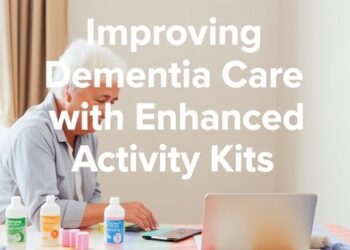Sports-related concussions (SRC) may not be associated with long-term cognitive risks for non-professional athletes, a study led by a UNSW medical researcher suggests. In fact, study participants who had experienced an SRC had better cognitive performance in some areas than those who had never suffered a concussion, pointing to potential protective effects of sports participation.
Sports-related concussions (SRC) may not be associated with long-term cognitive risks for non-professional athletes, a study led by a UNSW medical researcher suggests. In fact, study participants who had experienced an SRC had better cognitive performance in some areas than those who had never suffered a concussion, pointing to potential protective effects of sports participation.
Published in the Journal of Neurology, Neurosurgery and Psychiatry (JNNP), the research reveals that individuals who reported experiencing any SRC during their lifetime had a marginally better cognitive performance than those who reported no concussions.
The study, a collaboration between researchers at UNSW Sydney, the University of Oxford, the University of Exeter and Harvard University, analysed data from more than 15,000 participants from the UK-based PROTECT study of 50 to 90-year-olds. This ongoing research aims to understand brain ageing and cognitive decline.
“Our findings suggest that there is something about playing sport, even though a person may experience concussion, that may be beneficial for long-term cognitive outcomes,” says Dr Matt Lennon MD, PhD, a researcher at the Centre for Healthy Brain Ageing (CHeBA) at UNSW Medicine & Health and lead author of the study.
“While it may be that those who play sports have had access to better education and more resources, we controlled for these factors in the analysis, so that doesn’t explain the result. We hypothesise that there may be physical, social and long-term behavioural effects of sport that may make for healthier adults in late-life,” said Dr Lennon.
Largest study of long-term effects of sports concussions
The study is the largest to date examining the long-term cognitive effects of SRC. Researchers collected lifetime concussion histories from 15,214 participants using the Brain Injury Screening Questionnaire. Among them 6227 (39.5 per cent) reported at least one concussion and 510 (3.2 per cent) at least one moderate-severe concussion. On average, participants reported suffering their last head injury an average of 29 years prior to the study and their first head injury an average of 39 years earlier.
Researchers then compared cognitive function among individuals with 0, 1, 2 and 3+ SRCs and 0, 1, 2 and 3+ non-sports-related concussions (nSRCs) (i.e. from falls, car accidents, assaults and other causes). The SRC group showed 4.5 percentile rank better working memory than those who hadn’t experienced an SRC, and 7.9% better reasoning capacity than those without concussions.
Those with one SRC also had better verbal reasoning and attention compared to those with no SRC.
Conversely, participants with 3+ nSRCs – so things like accident and assaults – had worse processing speed and attention, and a declining trajectory of verbal reasoning with age.
“This study suggests that there could be long term benefits from sport which could outweigh any negative effects of concussions, which could have important implications for policy decisions around contact sport participation. It may also be that non-sports related head injuries lead to greater brain damage than sports-related concussions,” said senior author Professor Vanessa Raymont from the University of Oxford and Oxford Health NHS Foundation Trust.
The researchers say the study had some limitations.
“The retrospective design of the study, with elderly participants often recalling details of events over three decades in the past, may have affected the reporting of head injuries, even though we used a well-validated head injury screening tool,” said Prof. Raymont.
Study implications
The study looked at mid-to-late-life people who experienced SRC years earlier, whereas most other studies on SRC focus on younger athletes in the immediate period after their head injuries, where cognitive effects are most salient.
“While these results do not indicate the safety of any sport in particular, they do indicate that overall sports may have greater beneficial effects for long-term cognitive health than the damage it causes, even in those who have experienced concussion,” said Dr Lennon.
“This finding should not be overstated – the beneficial effects were small and in people who had two or more sports-related concussions there was no longer any benefit to concussion. Additionally, this study does not apply to concussions in professional athletes whose head injuries tend to be more frequent, debilitating and severe.”
Anne Corbett, Professor at Exeter University and the lead investigator of the PROTECT study, said: “What we see emerging is a completely different profile of brain health outcomes for people who have concussions as a result of sport compared to those that are not related to sport. Concussions that occur during sport do not lead to brain health concerns whereas other concussion types do, especially when people experience multiple concussions. In fact, people who take part in sport seem to have better brain health regardless of whether they have had a concussion whilst taking part or not.”
ENDS
Method of Research
Survey
Subject of Research
People
Article Title
Sports Related Concussion not associated with long term cognitive or behavioural deficits: The PROTECT-TBI Study
Article Publication Date
4-Sep-2024
COI Statement
Disclosures: Clive Ballard collected consulting fees from the following companies: Acadia, AARP, Addex, Biohaven, Eli Lily and Company, Enterin Inc, Exciva, H.Lundbeck A.S, Janssen Pharmaceuticals, Novo Nordisk, Orion Corp., Otsuka America Pharm Inc, Sunovion Pharm. Inc, Suven, Roche, Axosome and Biogen. Clive Ballard is on Advisory Boards for the following companies: Acadia, Roche, Novo-Nordisk, AARP, Biogen and Synexus. Clive Ballard received an Honorarium from Harvard University for speaking;
Adam Hampshire is owner and director of Future Cognition Ltd, a software development company the consulted on the development of the cognitive assessment software.




